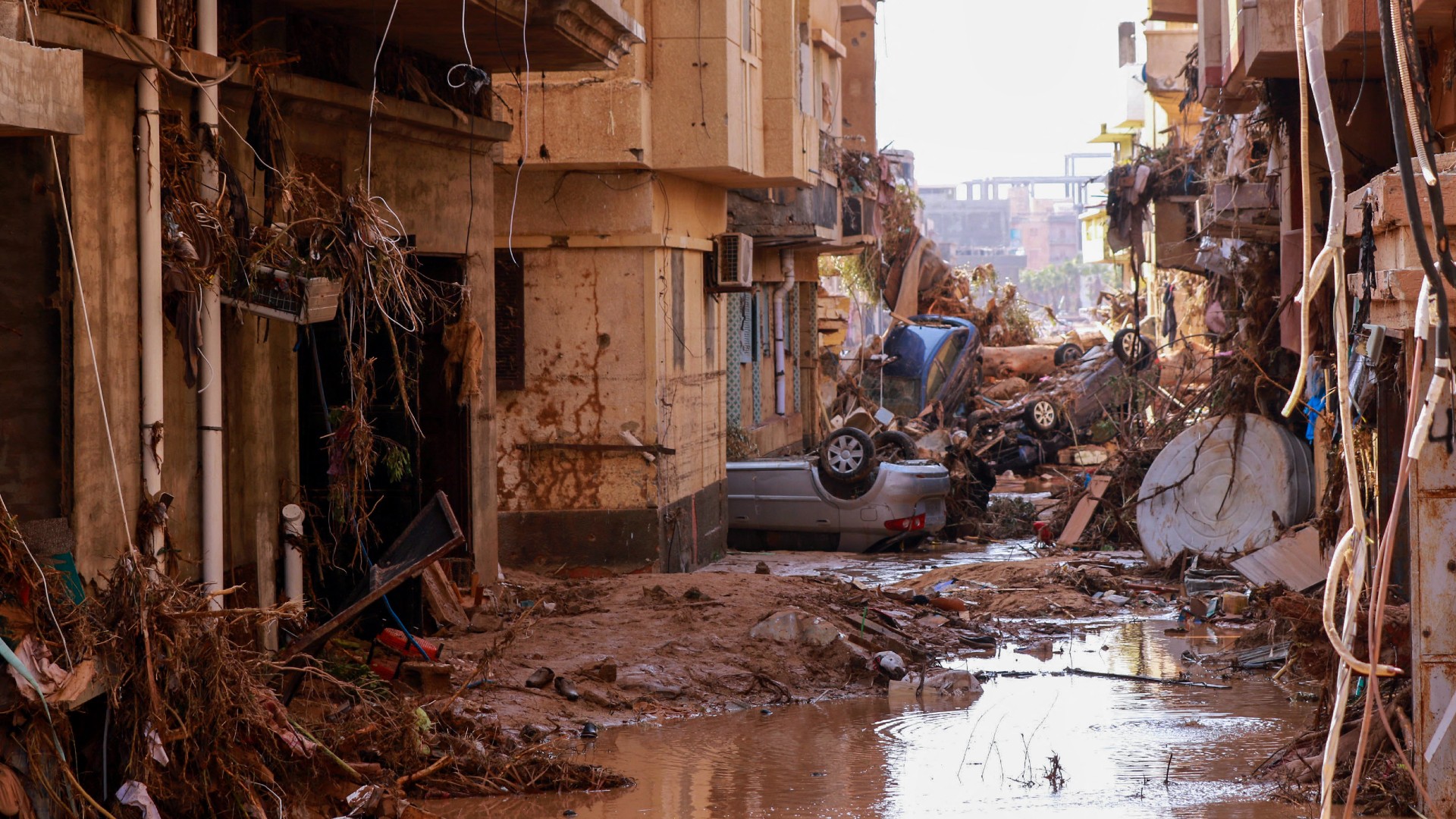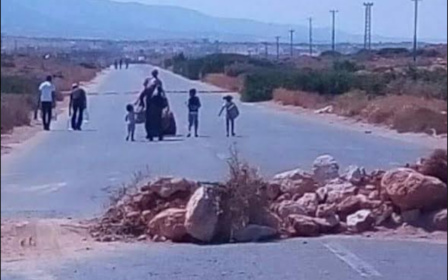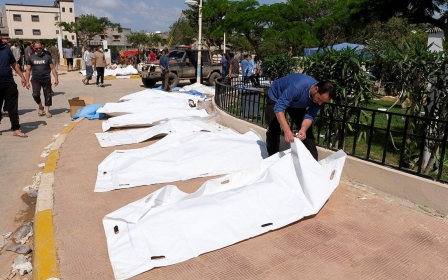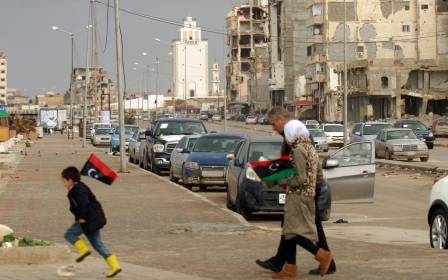Libya floods: Derna, a revolutionary city ruined once more
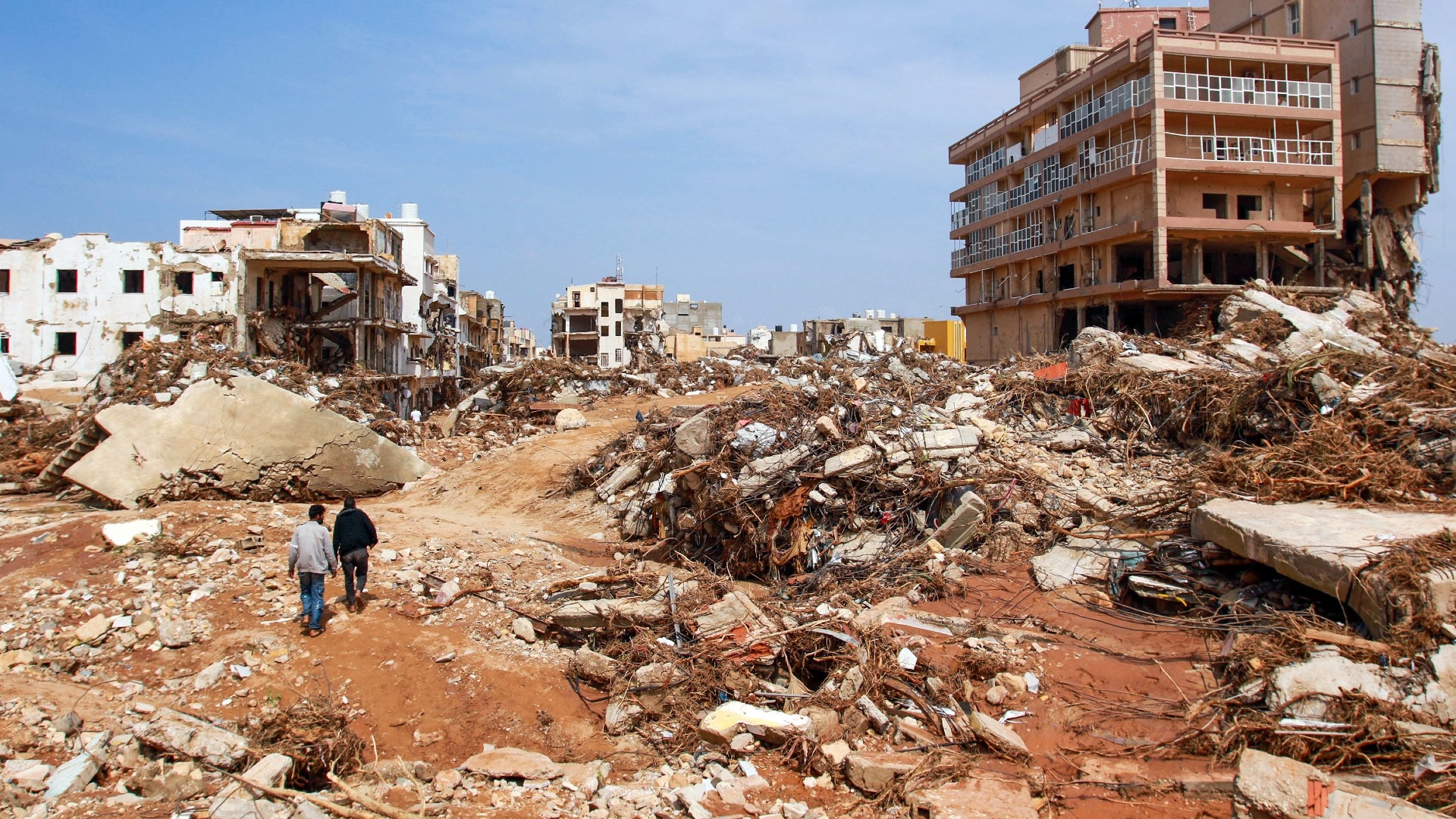
After Storm Daniel pummelled eastern Libya, the human tragedy of the flooding it caused is becoming apparent: authorities believe 5,200 people have died and more than 10,000 are missing.
Among the places worst hit is Derna, an eastern port city with a population of 10,000 that has a reputation for good and ill long before this latest catastrophe.
Videos posted online show bodies lying in the city's streets. Officials believe many corpses were swept out to sea.
Heavy rainfall and floods overwhelmed two nearby dams, causing waters to sweep through the city and bring many buildings crashing down.
Eastern Libyan authorities claim 25 percent of the city has been wiped out. Libyan journalist Mohammed Elgrj said as much as half of Derna may have been washed away.
New MEE newsletter: Jerusalem Dispatch
Sign up to get the latest insights and analysis on Israel-Palestine, alongside Turkey Unpacked and other MEE newsletters
"I returned from Derna. It is very disastrous. Bodies are lying everywhere - in the sea, in the valleys, under the buildings," Hichem Abu Chkiouat, minister of civil aviation and member of the emergency committee in the administration that controls the east, told Reuters by phone.
The disaster that has afflicted Derna, in particular, is likely to be a long-term tragedy for Libyan society, said Jalel Harchaoui, a Libya expert at the Royal United Services Institute (Rusi) think tank.
“For all kinds of historical reasons, Derna has emerged as a centre of rebellion. Not in a violent sense, it was much more intellectually driven,” Harchaoui told Middle East Eye.
“It was always a centre for artists, cultural figures, professors and writers. It has a tradition of being geared towards intellectual rebellion, independence and more importantly a long tradition of contestation. And of course, this applied to the Gaddafi era.”
'Bodies are lying everywhere'
In 2011, Derna and the nearby city of Benghazi were some of the first places to revolt against the rule of Muammar Gaddafi.
Derna, in particular, was feared by the autocrat, who according to Harchaoui actively encouraged its youth to leave first for Afghanistan to fight against the Soviets and then later to Iraq to fight against the Americans.
Since Gaddafi, however, the city has been both neglected and punished by the subsequent shifting authorities overseeing it.
'Haftar really doesn't trust Derna as a population. So for him the population - even if it's quiet - contains the germs of rebellion that we saw in the past'
- Jalel Harchaoui, Libya expert
Libyan journalist Mohammed Elgrj posted research that showed there have been warnings that the dams, built in the 1980s, were in danger of collapse.
Libya is currently ruled by two competing administrations, a UN-recognsised government in Tripoli and another authority in the east dominated by Khalifa Haftar, an eastern commander.
From 2015 to 2018, Hafta laid siege to Derna, trying to rid it of an armed group and consolidate his power in the east.
“In May 2018 Hafta began a violent incursion inside the city. And that war didn't discriminate between political opponents, extremists or civilians,” said Harchaoui.
“It was a very destructive, very brutal war that unfolded between May 2018 and January 2019,” he added.
"It was a war that was not just supported by Egypt and France, but also by Wagner, at least that's what my sources indicate," said Harchaoui, referencing the infamous Russian mercenary group.
"And once Derna was ‘liberated’, Haftar continued to be very suspicious."
A feared city
Harchaoui added that the destruction wrought by a decade of civil strife on Derna was only “indirectly recognised” in 2022 when politicians said millions of dollars needed to be invested in the city.
The people of Derna, however, were left out of the decision making.
“A Dernawi was not going to look after the reconstruction of his own city, it was going to be done by others,” Harchaoui said, adding: “There was a tendency to infantilise the population of Derna.”
“Haftar really doesn't trust Derna as a population. So for him, the population, even if it's quiet, it contains the germs of a new renewal, of rebellion that we saw in the past,” he added.
There are allegations in the Libyan media that Derna's mayor, Akram Abdul Aziz, asked permission to evacuate the city as Storm Daniel approached, which was reportedly denied by Haftar and eastern authorities. MEE has been unable to confirm these allegations.
Harchaoui said: “The leadership basically said no, no evacuation, and you can understand it in the light of the recent history that I just sketched, you don't trust the population.”
He added: “You want the population to stay roughly within the same logic of siege that we saw in the recent past. He [Haftar] basically ordered all the residents of Derna to stay in their homes, which in hindsight was the worst decision he could have possibly made.”
This article is available in French on Middle East Eye French edition.
Middle East Eye delivers independent and unrivalled coverage and analysis of the Middle East, North Africa and beyond. To learn more about republishing this content and the associated fees, please fill out this form. More about MEE can be found here.


